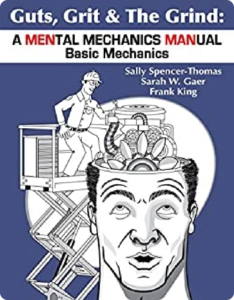In the demanding world of bovine practice, veterinarians face unique challenges. While their primary focus remains on ensuring the health and productivity of cattle, the increasing pressures of workload, financial stresses, and the emotional toll of animal care often go unnoticed. As professionals, veterinarians are expected to be pillars of strength for the animals and the farmers alike. Yet, what happens when the human element begins to fray under the constant pressure? Building resilience is not just a personal necessity—it’s a professional imperative.
During my years on the road as a comedian and a mental health speaker, I learned that facing stress head-on is the first step towards transformation. In high-stress fields such as veterinary medicine, the awareness of early burnout signs can be the difference between a flourishing career and a personal crisis. Veterinarians often do not have the luxury of time or resources to focus on self-care. However, recognizing the early indicators of stress—irritability, fatigue, reduced empathy, and poor decision-making—allows practitioners to intervene before these feelings escalate.
One effective strategy for managing stress is to redefine the workplace environment. A supportive culture goes beyond simply offering verbal encouragement—it requires structured, actionable steps. These include regular check-ins among team members, establishing communication protocols, and integrating stress management techniques into daily routines. When a veterinary team practices open communication, it becomes easier to address not only technical issues within cattle care but also the emotional well-being of the team. This dual focus creates a safety net that supports both the patient and the caregiver.
Incorporating humor as a coping mechanism can also be transformative. Laughter eases psychological tension and fosters camaraderie among professionals. When errors occur or when a difficult day leaves its mark, humor can serve as a reminder that no situation is insurmountable. The balance between professionalism and the light-hearted moment of shared laughter is crucial for sustaining mental health. Indeed, the power of self-deprecating humor lies in its ability to disarm tension and create an environment where vulnerability is not a sign of weakness but a testament to resilience.
Moreover, proactive mental health strategies such as mindfulness, brief meditation sessions, or even structured ‘decompression’ moments during a hectic day can drastically improve overall well-being. Organizations that invest in mental health initiatives see not only an improvement in morale but also in performance. In today’s rapidly evolving veterinary practice, adopting these practices is akin to regular preventive maintenance on a high-performance machine.
The road to better mental wellness in veterinary care does not require monumental changes overnight. It is a steady, sometimes subtle, shift towards acknowledging and addressing human vulnerabilities. For veterinarians, embedding these strategies in their daily routine is not just about personal care—it’s about ensuring that they continue to provide the highest quality care to their patients. As we move forward in a field that demands both precision and compassion, embracing a culture of resilience will be indispensable.
Make a Quick Call

